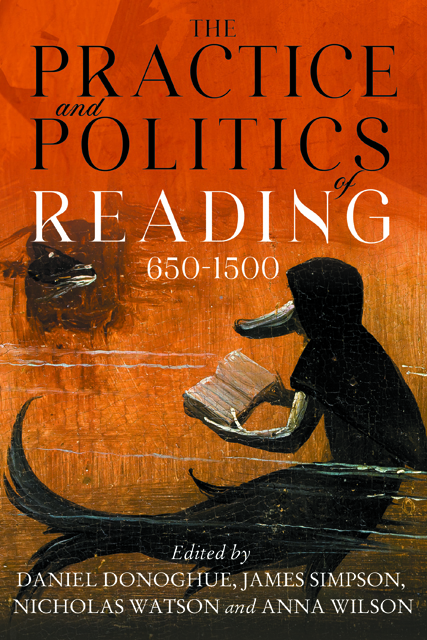12 - Shining Cities: Communal Reading and the New Jerusalem from Maidstone to McCain
Published online by Cambridge University Press: 11 January 2023
Summary
In august of 1392, the City of London marked the end of a long dispute with Richard II over taxation by welcoming him into the city with extravagant pageantry. Earlier that summer, the king had stripped London of many of its traditional privileges and had moved the Court of Common Pleas to York as a punishment for the city’s reluctance to subsidize his extravagance. The standoff ended when the citizens of London agreed to pay heavy fines, subsequently welcoming Richard back to the city with all the pomp and circumstance of a city receiving its newly crowned king. In a Latin poem commemorating the pageantry, known as the Concordia, the Carmelite friar and Ricardian loyalist Richard Maidstone describes an event that transfigured the urban landscape into a heavenly city. At Cheapside, wine replaced the water in the Great Conduit, while a “heavenly array” stood singing at the king’s approach (line 271). Ethereal figures descended from a makeshift castle to crown the king and queen. At the doors of St. Paul’s, meanwhile, a young man sat “like God himself” surrounded by angels (line 319). And at Temple Bar, a man dressed as John the Baptist hailed Richard as the Lamb of God.
The pageant was a particularly extravagant example, typical of Richard II’s tastes, of a triumphal royal entry, a ritualized theatrical phenomenon that by 1392 was gaining popularity across England, France, and Burgundy. As Gordon Kipling so vividly reports, northern European cities devised and enacted royal entries, on a classical ritual model, beginning in the late fourteenth century:
In addition to the marshalling of civic dignitaries to welcome the prince, the decoration of the city streets, the clamour of voices, the harmony of singers and musicians, and the splendour of the royal procession, the civic guilds now began to erect pageants in the streets and fill them with actors.
God the Father, Christ, angels, prophets, evangelists, saints, virtues and vices, the Four Daughters of God, and the Nine Worthies – among many others – now joined the citizens lining the streets to celebrate the coming of the king.
London and Paris witnessed the first such pageants in 1377 and 1380 respectively, with only one stage in each case.
- Type
- Chapter
- Information
- The Practice and Politics of Reading, 650-1500 , pp. 264 - 288Publisher: Boydell & BrewerPrint publication year: 2022



